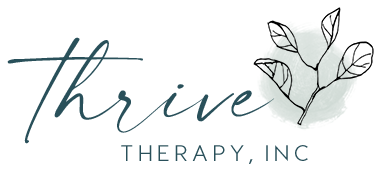When sexual assault survivors walk through the doors of our practice, they often carry not just the weight of their trauma, but additional burdens of guilt, shame, and self-doubt, particularly if they didn’t report their assault. As a therapist specializing in trauma recovery, I’ve seen firsthand how these complicated emotions can compound the healing journey.
The Reality of Unreported Assaults
 If you didn’t report your assault, you are far from alone. Statistics consistently show that the majority of sexual assaults go unreported, and for valid reasons. Some survivors fear they won’t be believed or will be blamed for what happened. Others worry about retaliation from their assailant, especially if that person is someone they know, which is often the case. Many simply cannot face the prospect of reliving their trauma through a lengthy and often re-traumatizing legal process.
If you didn’t report your assault, you are far from alone. Statistics consistently show that the majority of sexual assaults go unreported, and for valid reasons. Some survivors fear they won’t be believed or will be blamed for what happened. Others worry about retaliation from their assailant, especially if that person is someone they know, which is often the case. Many simply cannot face the prospect of reliving their trauma through a lengthy and often re-traumatizing legal process.
Whatever your reasons for not reporting, please understand: not reporting does not invalidate what happened to you. It does not mean the assault wasn’t “bad enough,” and it certainly does not mean you’re somehow complicit or responsible.
The Emotional Aftermath
- When survivors don’t report, they often experience a distinct set of emotional challenges:
- Guilt and shame may intensify as they question their decision, wondering if they should have done more to seek justice or protect others.
- Anxiety and fear can become overwhelming, particularly fears about being disbelieved if they ever do decide to share their story.
- Self-doubt may creep in, with survivors questioning their own memories or experiences—especially if they’ve encountered cultural messaging that minimizes certain types of assault.
- Isolation often follows, as survivors may feel unable to connect with support systems or other survivors if they haven’t “officially” acknowledged their assault through reporting.
These feelings are natural responses to an unnatural situation. They’re not signs of weakness or failure—they’re part of the complex emotional landscape of trauma.
Effective Paths to Healing
 The good news is that evidence-based therapeutic approaches exist specifically to address these challenges. Two of the most effective treatment methods for sexual assault survivors include:
The good news is that evidence-based therapeutic approaches exist specifically to address these challenges. Two of the most effective treatment methods for sexual assault survivors include:
Cognitive Processing Therapy (CPT) helps survivors identify and challenge unhelpful thoughts and beliefs that have developed after trauma. Many survivors develop what we call “stuck points”—thoughts like “It’s my fault because I didn’t fight back” or “I must not have been hurt badly enough since I didn’t report it.” CPT provides tools to examine these thoughts and develop more balanced, healing perspectives.
Prolonged Exposure (PE) therapy helps survivors gradually confront memories, feelings, and situations related to their trauma in a safe, therapeutic environment. This approach helps reduce avoidance behaviors that, while protective in the short term, often maintain trauma symptoms over time.
Both of these treatments have substantial research supporting their effectiveness for sexual assault survivors, regardless of whether they reported their assault.
The Journey Forward
Healing from sexual assault is not linear. Some days will feel like progress, others like setbacks. This is normal. What matters is that you’re taking steps toward reclaiming your sense of safety, agency, and self-worth.
Remember that choosing not to report your assault was a decision you made at a time when you were doing your best to protect yourself. That decision deserves respect from others and from yourself.
The path forward isn’t about changing the past; it’s about creating a future where your assault no longer defines your daily experience. Where triggers become less intense, shame loosens its grip, and you reclaim the parts of yourself that trauma tried to take away.
 If you’re reading this and recognizing your own experience, know that it’s never too late to seek support. Whether your assault happened recently or years ago, whether you’ve told many people or no one at all, trauma-focused therapy can help you process what happened and reduce its impact on your life.
If you’re reading this and recognizing your own experience, know that it’s never too late to seek support. Whether your assault happened recently or years ago, whether you’ve told many people or no one at all, trauma-focused therapy can help you process what happened and reduce its impact on your life.
Start Working With a Therapist for Sexual Trauma in Kentucky and Ohio
You deserve healing, regardless of the choices you made in the aftermath of your trauma. And when you’re ready, we’re here to support you on that journey.
Christina Hall is a licensed trauma-focused therapist specializing in working with sexual assault survivors. She employs evidence-based approaches, including CPT and PE therapy, to help survivors reclaim their lives after trauma. If you’d like to connect with Christina or another member of our team of caring therapists for a free 15-minute consult to see if it might be a good fit, please schedule on our “connect” page. You are not alone. Hope and healing are possible. Start your therapy journey by following these simple steps:
- Book a free 15-minute consultation call.
- Meet with a caring therapist
- Start seeking the support you deserve!
Other Services Offered by Thrive Therapy Inc.
Thrive Therapy Inc. is happy to provide support across Kentucky, Ohio, and New York. We know that people can experience more than one mental health concern at a time. This is why we are happy to offer additional services in addition to therapy for sexual assault survivors. We also offer a variety of in-person and online therapy services to support you. Other services offered include PTSD treatment, first responders, and childhood trauma survivors. You can learn more by visiting our FAQ or blog pages today.

